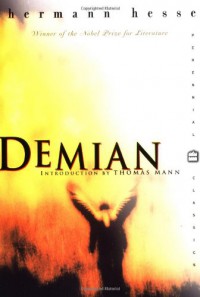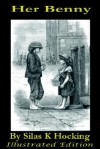Currently reading
The Lonely Sea: Collected Short Stories
Her Benny
Vedere din Parfumerie
Mysticism and Logic (Western Philosophy)
The Analects of Confucious
Pragmatism: A New Name for Some Old Ways of Thinking
Does Anything Eat Wasps?: And 101 Other Unsettling, Witty Answers to Questions You Never Thought You Wanted to Ask
Mutual Aid
City of Djinns: A Year in Delhi
The Brothers Karamazov
Demian
 I was prepared to crucify this short and tedious work as a kind of Celestine Prophecy for a far dumber age, until I saw that it was written at a time of high stress by a recently converted Jungian. At any rate, none of my friends rated it well either, so excoriating it no longer seems quite so necessary.
I was prepared to crucify this short and tedious work as a kind of Celestine Prophecy for a far dumber age, until I saw that it was written at a time of high stress by a recently converted Jungian. At any rate, none of my friends rated it well either, so excoriating it no longer seems quite so necessary.Perhaps Hesse was a dedicated pacifist, but this book would be as effective as a pistol against a tank in WWI or any war. I can't honestly find the pacifism in the book, except possibly as a subdued alternative to the usual German hysteria of its time, and if young Germans at the end of WWI were drawn to this updated take on German Romanticism, well, being goaded to let their personal will overcome all obstacles, to the point of killing your (metaphorical?) tormenter if necessary hardly sounds like pacifism to me.
I have a hard time accepting that the character of Demian is based on a Nobel-prize winning pacifist. The character comes across as some kind of messianic Hitler character, to be followed without being understood, and his advice makes total destruction of Europe sound necessary and possibly even good, so that those with "the mark" will survive, despite the fact that they join the initial destruction too.
I believe that Demian's secretive whispers to the effect that the world is nothing except what our individual will makes it is a reminder that German idealism, springing from Kant?, is what Bertrand Russell probably considered the dangerous German? drive to war.
The book seems in fact a study in symbols that appealed to young Germans for all the wrong reasons.
The only redeeming feature, and this of high quality, is the genuinely emotional portrayal of Hesse's quasi-religious youth. Later, more simplistic Hesse was popular with a man I know who is naive, a little stupid, and quasi-German. He read Hesse when he was 14 of course, when a combination of heartfealt naivete and a jumble of meaningless symbols appeals to the wrong people.
I almost wonder if the cult of teenagers in the US has its origins in a Germanic search for unmoderated impulse. Someone should have told those teenagers and and 20th-century Germans, and Hesse that, frankly, "you arent't that deep."













